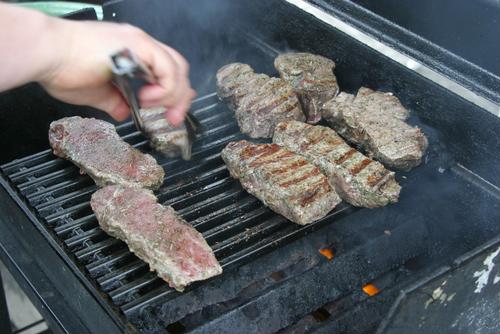Whether it’s from sunburn, a backyard grill, a campfire accident, a curling iron or any other cause, summertime burns can be painful and uncomfortable. Here are some tips to assist you when those summertime burn wounds show up.
How serious is it? Many burns are minor, not requiring extensive care. The Mayo Clinic states in rare situations you may need to go to an emergency room. The doctor will start by examining your skin to see if the burn covers more than 10% of your total body area. If it does, you’ll be transferred to a burn center for more specialized treatment.
 Treating summertime burns from sun, campfires, grills and other causes takes special care.
Treating summertime burns from sun, campfires, grills and other causes takes special care.What if it’s only a first-degree burn? The American Academy of Dermatology says that a minor, first-degree burn is limited strictly to the top layer of the skin. A sunburn is an example of a first-degree burn; your skin will be red and may show signs of mild swelling. Although this type of burn is not as serious as second- and third-degree types, it can still hurt. First-degree burns can usually be treated at home, with full recovery.
How do you treat a minor burn? The Cleveland Clinic advises getting out of the sun immediately and lowering your skin’s temperature with a cool bath or shower. This will provide some initial pain relief and help reduce inflammation. But don’t overdo it, as bathing or showering can also dry out your skin. Another option is applying cold compresses such as wet towels or washcloths as often as needed.
What about ice? Medication and Pharmaceutical News warns that starting burn treatment with ice may cause cause frostbite and damage the skin, leading to more complications. Their suggestion is to use room-temperature water.
What happens next? According to the American Academy of Dermatology, you should apply petroleum jelly several times per day and cover the wound with a sterile, nonstick gauze or bandage. The AAD says that if blisters form, the best thing to do is let them heal on their own but keep them covered. Finally, if the discomfort bothers you, take acetaminophen or ibuprofen to treat the pain and inflammation.
You’ll also want to talk to your doctor about iPak Unit Dose Packaging by Innovative Outcomes to get prescribed wound care supplies delivered to your front door, giving you all the tools to promote wound healing at home.





